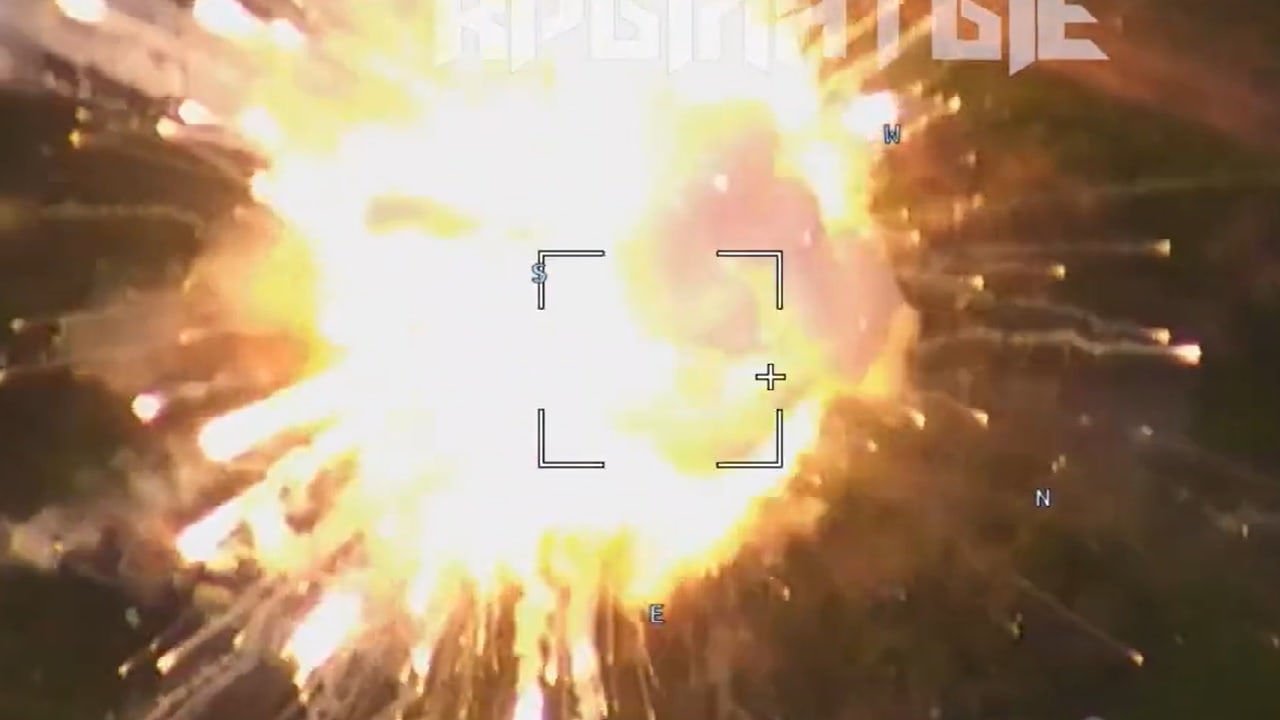Did Ukraine just try to kill Russian President Vladimir Putin? According to Russia, yes.
At least one drone exploded near the Kremlin, reportedly setting the Senate building on fire and causing some additional damage.
Russian sources further indicate that electronic counter-measures defeated the drones.
There are excellent reasons to doubt Russia assertions about the attack, and indeed the Kremlin may simply be trying to distract everyone from the troubling reality that Ukraine can strike Moscow. Regardless of where the attack came from or what it targeted, it represents an enormous embarrassment for President Putin and his administration. For its part, Ukraine denies any knowledge of the attack, a denial that’s worth everything it costs the Ukrainians to say it.
A Look At the Tech on the Putin Assassination Attempt
We don’t yet know the specifics of the aircraft that were used in the attack. Video indicates at least one drone exploding over the Kremlin, but the details of the vehicle are hard to discern. Ukraine has launched other missile attacks against Russian targets, although none at this distance or with this apparent accuracy. Nevertheless, the technology to build larger and longer-ranged drones is hardly outside Kyiv’s reach.
Russia has the advantage of being able to recover and control the wreckage of any drones. Knowing the size of the vehicle was also offer clues as to how it apparently evaded Russian air defense systems on its way to Moscow. Given the electronic traffic over and near the target, the guidance system has to be one of the key questions for Russian investigators moving forward. Russia will certainly want to pre-emptively disrupt any additional attacks on Moscow.
Assassination?
We don’t know if this was an assassination attempt. We only know that the Russians want us to think so.
Whomever you ask, the question of assassination during war feels twitchy. International law (and much domestic law) tends to take a dim view of the assassination of foreign officials even in times of war, but certain conditions can excuse an attack.
Vladimir Putin undoubtedly holds direct authority over the military forces of the Russian Federation, making him, like anyone else in the direct line of command of fielded Russian military forces, a legitimate military target. The United States attempted to kill Iraqi President Saddam Hussein in the opening hours of the 2003 war on the same legal justification. And given the credible accusations that Russian forces attempted to assassinate President Volodomyr Zelenskyy in the opening days of the war, an attack on Putin wouldn’t exactly constitute escalation.
However, there are serious questions about the wisdom of an assassination attempt against Putin. From a technical standpoint, a long-range drone strike is a pretty high-odds gamble for Ukraine; the weapons would need to avoid Russian defenses, have pinpoint accuracy, and enjoy the staggering luck of having Putin at a predictable place at a predictable time. From a political standpoint, there are probably downsides to threatening the direct safety of a man who can launch thousands of nuclear weapons, especially since it’s hardly evident that any successor would be more diplomatically flexible.
What Do We Know and What Happens Now with Putin?
There’s a lot we don’t know. We don’t know whether the attack was launched by the Ukrainian armed forces or by Ukrainian partisans or even by Russian dissidents. We don’t know whether Putin was actually targeted. We do know that Moscow is now at least notionally vulnerable to Ukrainian attack. We also know that Russia will feel the need to respond to this attack, either because it believes Kyiv tried to assassinate Putin or because it wants people to believe that it believes thus.
Assuming Ukraine launched this drone, it may have been less of an attempt to cause damage than to force Russia to reorient its air defense assets away from the front. It would be politically troubling for Putin to allow the Ukrainians to batter Moscow in the same way that Russia has battered Kyiv; Russia is, after all, a great power.
The Ukrainians may also have been attempting to goad the Russians into some unwise assault in advance of the long-expected Ukrainian offensive. We’ll know more when the war is over and the histories have been written.
MORE: Joe Biden Won’t Send F-16 Fighters to Ukraine
MORE: Why Putin Should Fear the F-16 Fighter
Dr. Robert Farley has taught security and diplomacy courses at the Patterson School since 2005. He received his BS from the University of Oregon in 1997, and his Ph. D. from the University of Washington in 2004. Dr. Farley is the author of Grounded: The Case for Abolishing the United States Air Force (University Press of Kentucky, 2014), the Battleship Book (Wildside, 2016), Patents for Power: Intellectual Property Law and the Diffusion of Military Technology (University of Chicago, 2020), and most recently Waging War with Gold: National Security and the Finance Domain Across the Ages (Lynne Rienner, 2023). He has contributed extensively to a number of journals and magazines, including the National Interest, the Diplomat: APAC, World Politics Review, and the American Prospect. Dr. Farley is also a founder and senior editor of Lawyers, Guns and Money.

